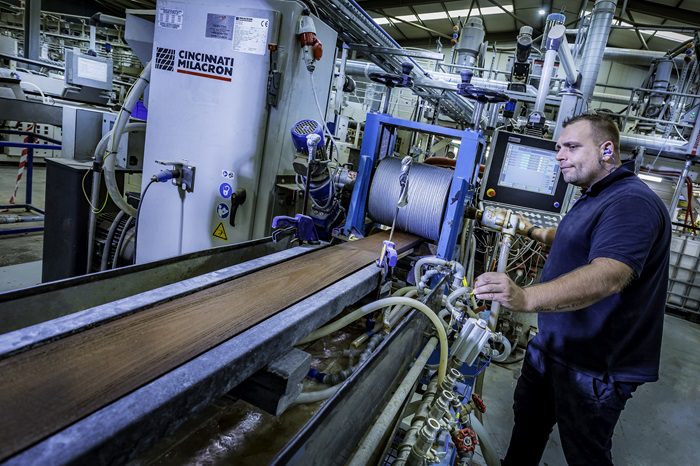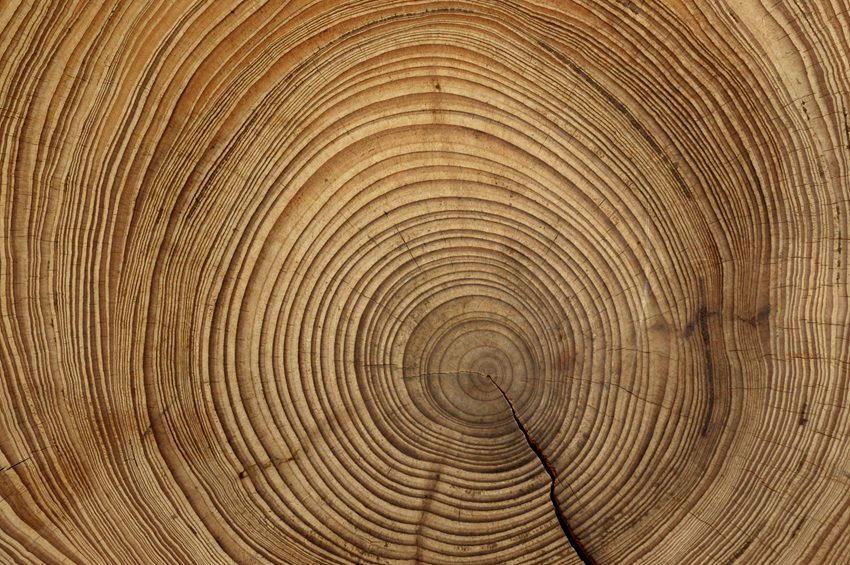Factors to consider when comparing the sustainability of decking
There are many varieties of commercial decking on the market, from wood polymer composite, to timber decking and pvc deck boards. But which is the most environmentally-friendly option? In order to compare the sustainability of decking you need to consider the following factors:
- Sustainability of the material
- Ongoing material treatments
- Transportation
Composite decking
Composite decking perfectly emulates real timber and some brands are manufactured from a mixture of sustainable and recycled materials. For example, Ecodek boards are produced from 60% sustainably-sourced wood flour and 35% recycled HDPE polymer (recycled milk bottles).
Our boards are also 100% recyclable at the end of their life. We’re proud that we exclusively offer a waste buy-back scheme where we pay to take back cut-offs and re-use them in our manufacturing of new deck boards.
Once installed, composite decking does not require any treatments or paints to protect it from the elements – some of which can be harmful to the environment. It also does not need harsh cleaning products to keep it looking like new.
All combined, this makes wood composite decking an extremely environmentally-friendly option.

Wood decking
Wood decking has often been viewed as the most environmentally-friendly decking option. However, it’s important to do your homework – where does your wood come from? Is it from a sustainable source? Are trees being planted in their stead? Always look for a FSC® or PEFC logo to be sure of the ‘real’ source of your timber.
Wood also requires regular treatment to safeguard it against the weather. Sometimes these treatments can release harmful fumes into the environment and chemicals into the ground.

Plastic decking
Plastic decking has long been considered the least environmentally-friendly option. However, with advances in recycling technology, plastic decking can now be easily recycled, and that recycled material put back into the manufacturing process.
Also, as with composite decking, PVC decking does not need treatments or paints to protect it, minimising its impact on the surrounding environment.
Transportation – where is your decking manufactured?
When considering the environmental impact of your decking, it’s also wise to think about where the decking is being manufactured and how far it’s traveling to reach its final home.
Remember that a lot of timber is imported into the UK, leading to a greater carbon footprint and it’s consequential effect on the environment. Similarly many brands of PVC and wood composite decking are manufactured overseas – in the Far East and the USA – again increasing the carbon footprint of the decking.
Because we manufacture from our site in Scunthorpe, Ecodek decking has a much smaller carbon footprint than many of our competitors – adding the excellent eco-credentials of our products.
Which decking is the best for the environment?
We may be biased, but we believe wood composite decking is the most sustainable decking option. Not only is it made from sustainable materials and can itself be recycled, but it also requires no harsh treatments or cleaners to keep it looking beautiful. And – with Ecodek decking – it’s manufactured here in the UK so there is no need for international travel.
For further information on our decking choices and their environmental impact, call our expert team today on 01978 667 840.
